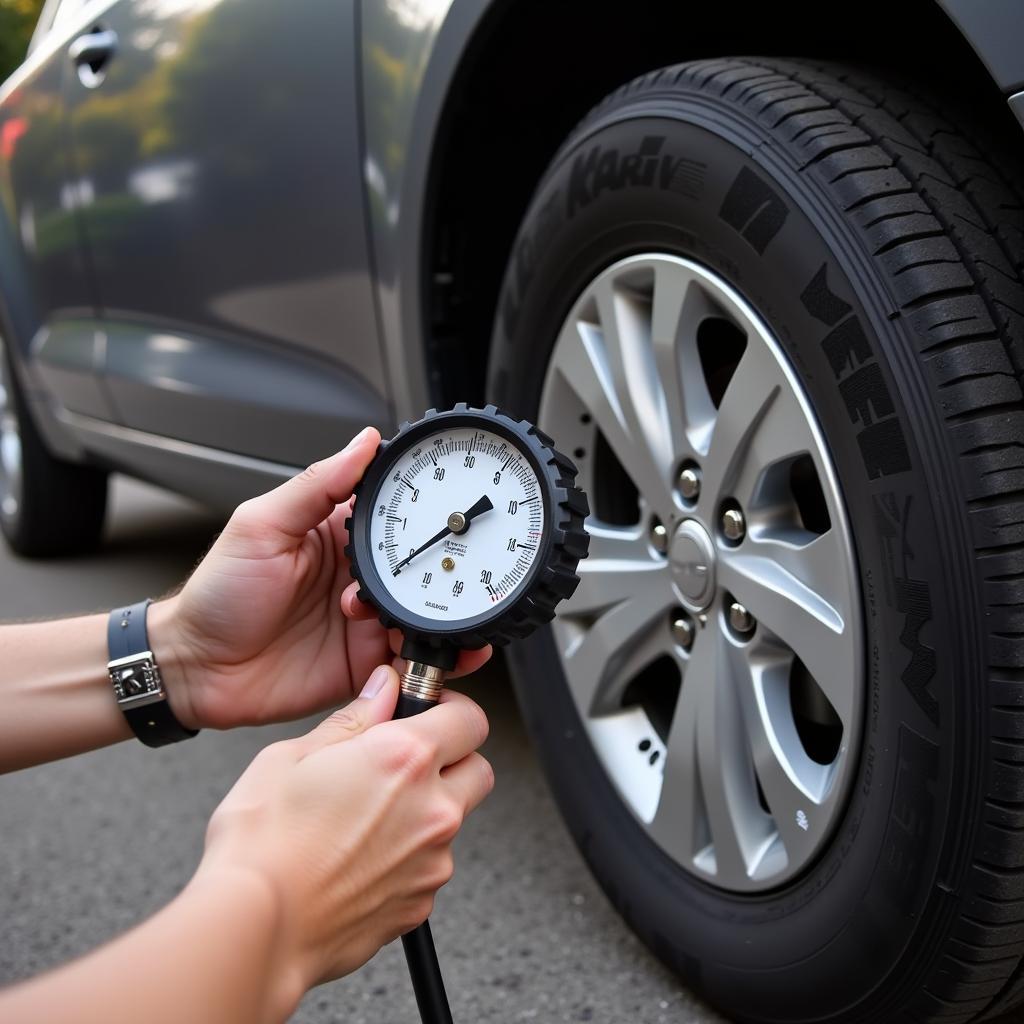Learning the basics of General Car Maintenance Class is crucial for every car owner. Whether you’re a seasoned mechanic or a novice driver, understanding how your vehicle works and how to keep it in top condition can save you money, extend the life of your car, and ensure your safety on the road. This guide provides a comprehensive overview of essential car maintenance practices, empowering you to take control of your vehicle’s health. You’ll learn valuable tips and techniques that can be applied to any make or model. Dive in and become your car’s best friend!
Why General Car Maintenance Matters
Regular maintenance is like giving your car a health check-up. It helps identify potential problems before they become major headaches. Think of it as preventative medicine for your car, keeping it running smoothly and reliably.
Not only does proper maintenance save you money on costly repairs down the line, but it also contributes to road safety. A well-maintained car is less likely to experience unexpected breakdowns, ensuring your peace of mind and a safer driving experience. maintenance cost comparison of cars will further help you understand the financial implications of neglect.
Essential Components of a General Car Maintenance Class
A comprehensive general car maintenance class should cover several key areas, including regular checks, fluid top-offs, and basic repairs. This foundational knowledge is essential for keeping your car in optimal condition.
Fluids: The Lifeblood of Your Vehicle
Fluids are essential for your vehicle’s performance. Checking and topping off these fluids regularly prevents damage to vital engine components.
- Engine Oil: The engine’s lubricant. Check the oil level using the dipstick and ensure it’s within the recommended range.
- Coolant: Regulates engine temperature. Check the coolant level in the reservoir and top it off if necessary.
- Brake Fluid: Essential for braking system function. Low brake fluid can indicate a leak and requires immediate attention.
- Power Steering Fluid: Assists in steering. Low fluid can make steering difficult.
- Transmission Fluid: Lubricates the transmission for smooth gear changes.
Tires: Your Contact with the Road
Tire pressure and tread depth significantly impact your car’s handling and safety. Regularly check your tire pressure and ensure it matches the recommended PSI. Also, inspect your tires for uneven wear and tear.  How to Check Tire Pressure Rotating your tires every 5,000-8,000 miles ensures even wear and prolongs tire life.
How to Check Tire Pressure Rotating your tires every 5,000-8,000 miles ensures even wear and prolongs tire life.
“Proper tire maintenance isn’t just about safety; it’s about fuel efficiency too. Under-inflated tires create more drag, forcing your engine to work harder and consume more fuel,” says Robert Thompson, a seasoned automotive expert at Speedy Lube.
Brakes: Stopping Power You Can Rely On
Brakes are critical safety components. Listen for any squeaking or grinding sounds, which could indicate worn brake pads. If you notice any changes in braking performance, get your brakes inspected immediately. car maintenance check year provides a useful checklist to track your maintenance schedule.
Filters: Keeping Things Clean
Regularly replacing your engine air filter, cabin air filter, and fuel filter ensures clean air and fuel flow, contributing to optimal engine performance and fuel efficiency.
Lights: Seeing and Being Seen
Inspect all your lights regularly, including headlights, taillights, brake lights, and turn signals. Replace any burnt-out bulbs immediately.
What Will You Learn in a General Car Maintenance Class?
A quality general car maintenance class should equip you with the skills and knowledge to perform basic maintenance tasks. This includes understanding how to change a tire, jump-start a car, check fluids, and inspect belts and hoses.
“A good general car maintenance class will empower you to handle minor issues yourself, saving you time and money on trips to the mechanic,” advises Maria Sanchez, Lead Instructor at AutoTech Training Institute.
How Much Does Car Maintenance Cost?
The cost of car maintenance varies depending on the make and model of your car, as well as your driving habits. However, regular maintenance is always cheaper than major repairs. car maintenance cost chart and comparing maintenance costs cars provide helpful resources for budgeting your car maintenance expenses.
Understanding Your Car’s Maintenance Schedule
Refer to your owner’s manual for the recommended maintenance schedule for your specific vehicle. This schedule outlines the recommended intervals for various maintenance tasks, ensuring your car stays in top condition.
Conclusion
Understanding the basics of general car maintenance is an investment in your car’s longevity, your safety, and your wallet. By taking a proactive approach to maintenance, you can avoid costly repairs, extend the lifespan of your car, and enjoy a safer and more reliable driving experience. Contact AutoTipPro at +1 (641) 206-8880 or visit our office at 500 N St Mary’s St, San Antonio, TX 78205, United States for further assistance with your general car maintenance needs. car maintenance bill with gst will give you an idea of the billing process.
FAQ:
- How often should I change my oil?
- What is the importance of tire rotation?
- How can I tell if my brakes need replacing?
- What are the signs of a failing alternator?
- How do I check my transmission fluid?
- What is the purpose of the cabin air filter?
- How can I jump-start my car safely?





Leave a Reply